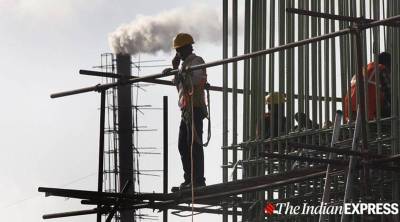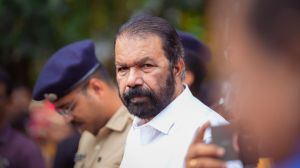Home bias
The government’s stand on 377 is shameful. Listen to Ramadoss, everyone

In reports emerging of the reactions of the judges of the Delhi High Court who are hearing the government’s arguments against the legalisation of homosexuality, the outrage and confusion that they clearly feel at the illiberal and contradictory stand that the additional solicitor-general has taken on behalf of the government come through quite clearly. The court’s incredulity is something that is, needless to say, shared by all of liberal India, as the government has in succession said that homosexuality “disturbs the public peace”, impacts health adversely for homosexuals, impacts health adversely for non-homosexuals, that it would “open the floodgates for delinquent behaviour”, that it is a “social vice” and a “reflection of a perverse mind”. This cavalcade of antediluvian attitudes and half-formed misinformation is supposed to serve as justification for keeping an unknown but large number of otherwise law-abiding citizens of India in a state of permanent criminality.
Let us be clear on this: as the court implied, in asking for empirical evidence, there is absolutely no data that can back up the government’s claims. Indeed, in Brazil, for example, increased public and administrative acceptance of homosexuality in an otherwise macho culture was one prong of a multi-pronged effort to contain the spread of AIDS. Some years later, the number of HIV/AIDS patients was barely half the figure that had been predicted by the World Bank. Compare that to famously homophobic Jamaica, where efforts to stem the HIV epidemic have stumbled on the fact that no homosexuals come forward to be treated, according to its own health ministry. India’s health minister, Anbumani Ramadoss, has repeatedly said that it is his ministry’s position that criminalisation of homosexuality impedes anti-HIV work. He is to be lauded for this. What is even more laudable, and impressive, is that he has chosen to publicly take on the home minister on the subject, not only as a doctor and health practitioner but as a liberal, demanding that Patil be “more progressive” and “a lot more sensitive”, while pointing out that acceptance of alternate sexualities has grown “the world over”.
Fortunately, this is a question of rights — fundamental rights in the Constitution clearly prohibit sex-based discrimination — and the domain of the courts. But whatever the decision, it is also a question of basic dignity, and the government has already failed miserably in ensuring that one of India’s minorities is provided the minimum respect that any liberal state should provide its citizens.



- 01
- 02
- 03
- 04
- 05




























